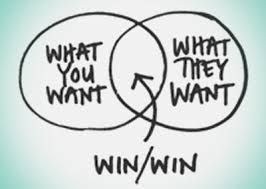What is empathy? If you think it’s lightweight, airy fairy, post-modern self-help delusion, then check out this short animation from Jeremy Rifkin and the Royal Society of Arts. Could just be that we are all soft-wired for empathy and that it evolved as more of a pragmatic behaviour. If we embrace this notion, there could be a multitude of ramifications for how we live and work.
http://www.thersa.org/events/rsaanimate/animate/rsa-animate-the-empathic-civilisation
Survival of the most Empathic
Empathy is the lubrication that maintains strong relationships and allows us to build trust with others both personally and professionally. Putting ourselves in someone else’s shoes and seeing something as the other guy does are invaluable survival techniques. When a child sees an adult obviously in a state of upset, it’s common for the child to offer their favourite toy to that adult in a bid to cheer them up. Often this seemingly selfless action surprises us.
But perhaps deep within our collective unconscious, this ability or skill is as fundamental as any form of communication. Perhaps in ensuring all members of the tribe are healthy and happy, our ancestors ensured the overall tribe and therefore the “selfish” or individualistic survival needs of every member were met. In other words, by using empathy we look after the collective and in doing so increase our personal survival.
Empathy for Leaders
Actors are truly aware of how to use and display their empathy. In approaching a role, the actor has to use her own experience and memory of events and emotions to connect with a character in a play. To really get a handle on how the character talks, walks, acts and feels, the actor has to stretch herself and explore human behaviour as fully as possible.
What learning then could be transposed for today’s business leaders? Many of whom are focused on the bottom line, share price, their own stock options, their personal profile… As opposed to really understanding the wants, needs, motivations and emotions of the people who are the organisation.
It’s a well worn cliche that “our people are greatest assets” or words to that effect. If you’re a business leader, isn’t it time you carved out time to understand your greatest assets..?
Sartaj Garewal is the founder of Dynamic Presenting – a creative, leadership development consultancy, adapting theatre training to create leadership programs for business.
Dynamic Presenting – Enabling Powerful Communication





